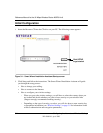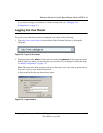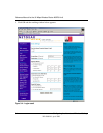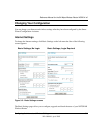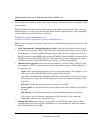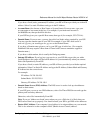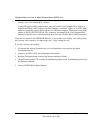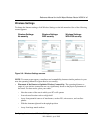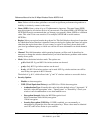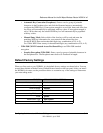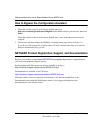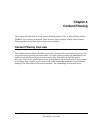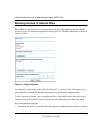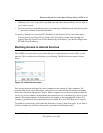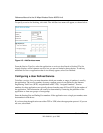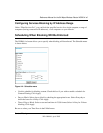
Reference Manual for the 54 Mbps Wireless Router WGR614 v6
3-10 Configuring the Internet and Wireless Settings
202-10099-01, April 2005
Note: Failure to follow these guidelines can result in significant performance degradation or
inability to wirelessly connect to the router.
• Name (SSID): Enter a value of up to 32 alphanumeric characters. The same Name (SSID)
must be assigned to all wireless devices in your network. The default SSID is NETGEAR, but
NETGEAR strongly recommends that you change your network's Name (SSID) to a different
value. This value is also case-sensitive. For example, NETGEAR is not the same as
NETGEAr.
• Region: Select your region from the drop-down list. This field displays the region of operation
for which the wireless interface is intended. It may not be legal to operate the router in a region
other than the region shown here. If your country or region is not listed, please check with
your local government agency or check our web site for more information on which channels
to use.
• Channel: This field determines which operating frequency will be used. It should not be
necessary to change the wireless channel unless you notice interference problems with another
nearby access point.
• Mode: Select the desired wireless mode. The options are:
– g & b: Both 802.11g and 802.11b wireless stations can be used.
– g only: Only 802.11g wireless stations can be used.
– b only: All 802.11b wireless stations can be used. 802.11g wireless stations can still be
used if they can operate in 802.11b mode.
The default is "g & b", which allows both "g" and "b" wireless stations to access this device.
• Security Options
– Disable: no data encryption
– WEP (Wired Equivalent Privacy): use WEP 64 or 128 bit data encryption
• Authentication Type: Normally this can be left at the default value of "Automatic." If
that fails, select the appropriate value - "Open System" or "Shared Key" Check your
wireless card's documentation to see what method to use.
• Encryption Strength: Select the WEP Encryption level:
64-bit (sometimes called 40-bit) encryption
128-bit encryption
• Security Encryption (WEP) Key: If WEP is enabled, you can manually or
automatically program the four data encryption keys. These values must be identical
on all PCs and Access Points in your network.



